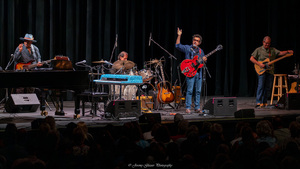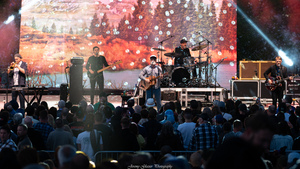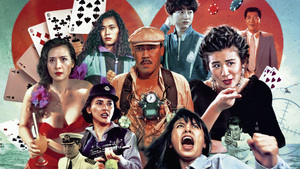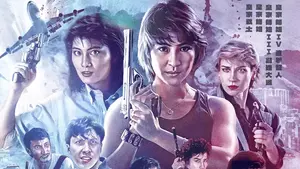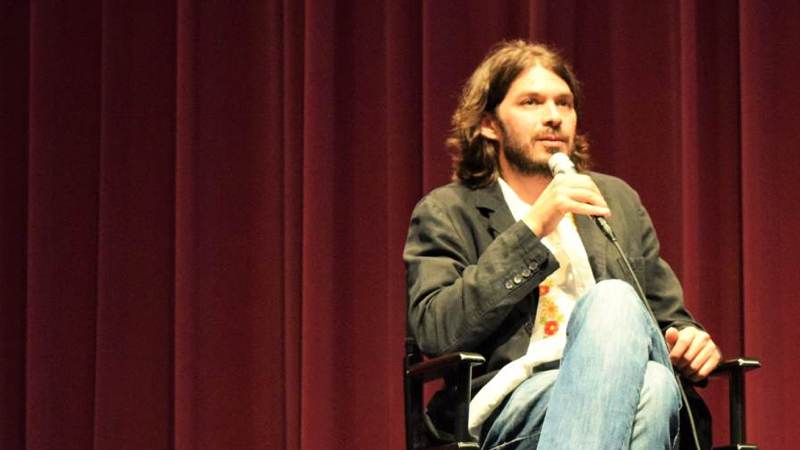
Reflections of Man In Nature: Yo, the meditative new film by
Matías Meyer
by Generoso and Lily Fierro
On June 17th and 18th, the UCLA Film & Television Archive presented the first complete retrospective on the work of emerging independent Mexican filmmaker Matías Meyer. The retrospective collected the short films across Meyer’s career, including his first films made as a student at Centro de Capacitación Cinematográfica, and his four feature films, with his most recent film, Yo, receiving its US premiere on the opening night of the series.
In all of Meyer’s films, voyages frame the narratives for both the characters and the viewers, and in each voyage, the environment and the characters have a tacit yet well-understood relationship with each other, moving in a fluid call-and-response way to the presence of one another. As a result, the environment is as much, if not more, of a character than the people in Meyer’s films. With the exception of his most recent short, which was filmed in Meyer’s current half-home of Quebec, Le champ des possibles (“The Field of Possible”), the director’s focus is committed to the ever-changing environment of Mexico, whether looking at its past, as seen in his documentary, Moros y Cristianos (“Moors and Christians”), about the largest open-air group presentation in all of Latin America, a re-enactment of the 16th century Battle of Lepanto, and his most ambitious narrative feature, Los Últimos Cristeros (“The Last Cristeros”), set during Zapata-era Mexico, or its present day, with films like Wadley, an experimental view into one man’s journey through the wild Mexican landscape, and Yo, which, based on our conversation with Matías during the series, is his most personal film to date.
Yo refers to the title character (played by Raúl Silva Gómez), a large man in his early twenties who we soon realize is functional, yet developmentally challenged, and as thus, he remains in a state of perpetual adolescence. Yo is under the care of his mother (Elizabeth Mendoza), and they both live and work at the family restaurant where Yo has the unenviable task of slaughtering and plucking the chickens that they serve. Also residing with Yo is his mother’s lover Pady (Ignacio Rojas Nieto), a brutish man in his fifties who has a tendency towards being abusive towards Yo, which seems to have become so commonplace that no one in the house raises any concern, including Yo, who seems content with his menial tasks and chances to play with his coins on the floor of the restaurant and goes unnoticed to the patrons as though he is a piece of furniture, a trivial part of the restaurant setting. This is the first moment that one notices humans’ interactions with their surroundings, a key element in most of Meyer’s previous work.
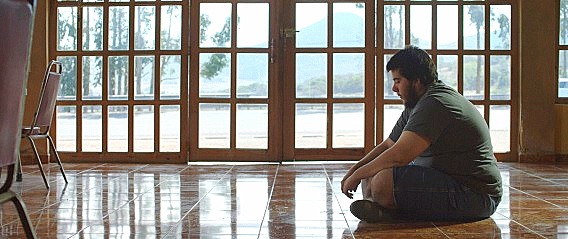
Furthering this motif of man’s reaction to his environment, man-made or natural, are the moments when Yo, who takes great joy in watching the giant tractor-trailer trucks that tear through his normally serene Mexican village, becomes plagued by nightmares of the local river dangerously overflowing, which wakes Yo from his sleep and forces his mother to reassure him by taking him to the still, placid river in the middle of the night. Even though Yo’s mother turns a blind eye to the abuses in the home by championing her lover over her son, she is still overprotective of Yo when it comes to how he might function outside of her grasp.
With business in the restaurant improving, Yo’s mother hires a woman to help her out who must also bring her eleven-year-old daughter, Elena (Isis Vanesa Cortés), to the restaurant everyday. Elena and Yo immediately become friends, but with this newfound friendship comes a layer of tension for the viewer as Yo, who has had limited interactions with women, may not have the emotional maturity to control his sexual impulses. Yo and Elena take frequent trips to the nearby river together and play with one another in a flirtatious way, but Elena, who seems beyond her years in maturity, deflects any casual advances from Yo. Though Yo is twenty-two, these moments with Elena are most likely his first foray into society without the guarded eye of his mother there to establish order. No one has gotten hurt, but soon Yo will be forced to face the outside world head-on when Pady purchases a machine that can handle Yo’s singular chore of killing and plucking the chickens for the restaurant. Pady then calls in friends to get Yo work hauling rubble at a local construction site, so Yo can begin the process of becoming an adult away from his mother’s daily reach.
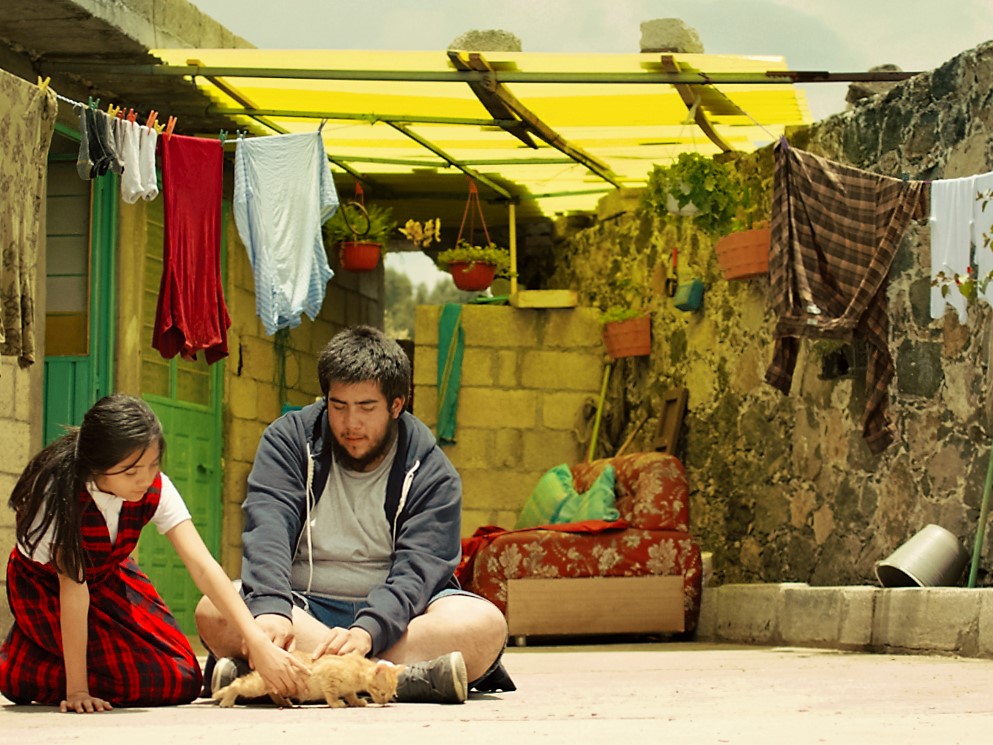
Once on the construction site, Yo does hard physical labor and is up to the task, much to the delight of his co-workers and his supervisor. Yo even makes friends at his new job, friends who expose Yo even further to mainstream society as they introduce Yo to the vices of alcohol and prostitution. Whether Yo’s newfound friends are laughing with him or at him, they welcome him as part of their group and take him to nightspots where Yo again blends into his surroundings without appearing too out of place, but just like the river that Yo imagines overflowing, how long will his inner peace remain intact given the ever changing environment around him?
As opposed to Meyer’s previous feature, the Zapata-era film, Los Últimos Cristeros, Yo is a fairly modest production that involves a small amount of actors, the usual use of the set, one-camera shot for most scenes, and a few locations, but like his previous feature, it utilizes the spacious natural terrain of Mexico to cleverly further the development of the film’s central characters. The tension that Meyer creates with his character of Yo and his disenfranchisement with his surroundings is palpable throughout the film in the same eerily quiet and ominous way that Iranian director Jafar Panahi presents in his equally marginalized central character of Hussein, the beleaguered and impoverished pizza delivery man who wanders through a unwelcoming Tehran, in his 2003 film, Crimson Gold. As in Crimson Gold, an excellently crafted level of tension is what drives the narrative even during the most tranquil of scenes, which provided the main reason why we were so completely engaged with the film.
Impressed by Meyer’s achievement in his fourth feature, my wife Lily and I were fortunate enough to sit down with the young director to discuss his work the day after attending the screening of Yo at UCLA.
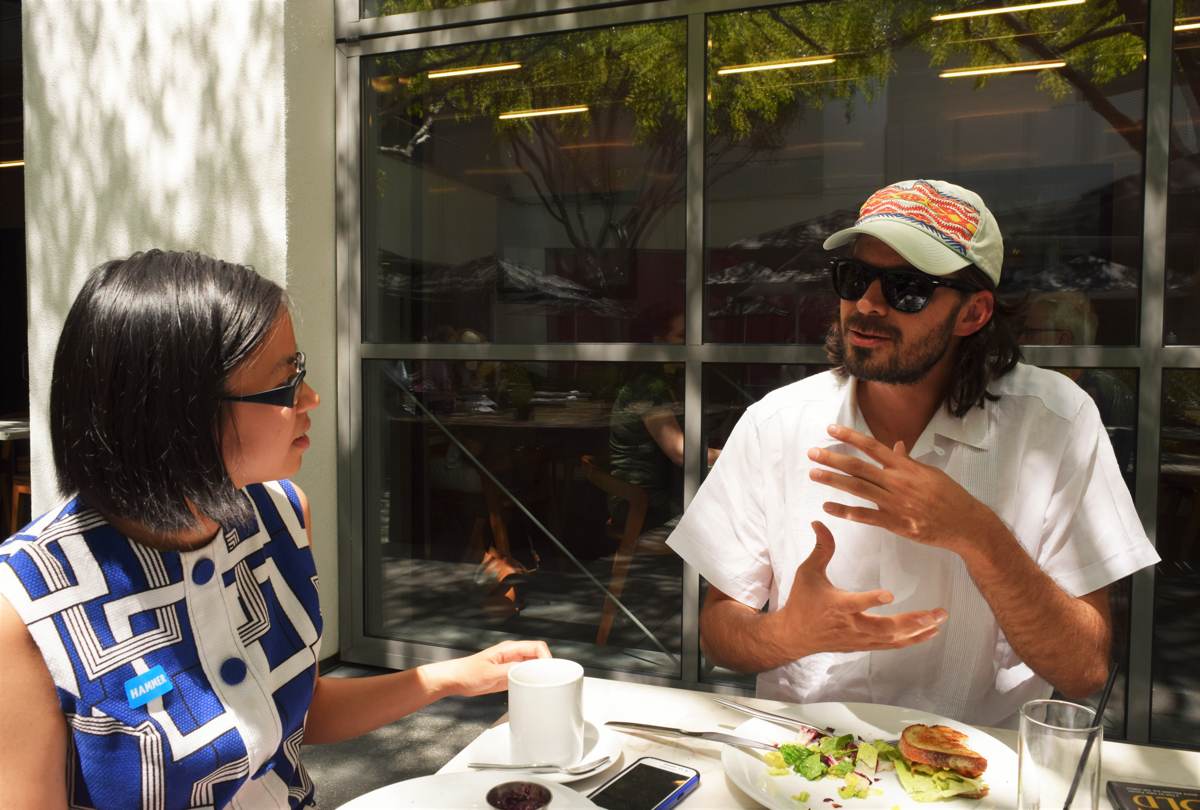
• •
Lily Fierro : Last night, during the premiere of Yo, you spoke about the invisibility of Mexican cinema. In your answer, you had mentioned that some of your fellow directors believe that making films more specific to what audiences want, is a solution to this issue. You said that this would not be your own approach. In what way do you think that Mexican filmmakers can make films that capture Mexico’s landscape, culture, and tradition without concern that foreign audiences may feel alienated?
Matías Meyer : The thing is in Mexico City, recently, there was the Mexican “Oscars,” called The Ariel Awards, and we went to the ceremony and saw the famed director Paul Leduc, who was receiving a Golden Ariel for his career, make a speech for fifteen minutes that focused on the invisibility of Mexican cinema. The government is very proud to say that they have produced one hundred and fifty films a year, and he responded by saying that yes, but no one ever sees them. He then said something that really registered for me, and that was, “Mexicans do not really want to be Mexican. Culturally, they are more into the American cultural empire.”
I myself, grew up in a small town in Mexico, and for most young people, it was about wearing Nikes to be more like Michael Jordan or about American football and Deion Sanders, so it was more about this part of American culture. So, you have this American dream, about how cool it is to live in the United States, and for entertainment and films, you have the Rambos and the Commandos that you watched on television, but on the other side, you have the telenovelas, that are all about drama and class struggles. Mexicans are always watching television; even when you see a taco vendor in the street, they will have a small television, and if they are not watching sports, they are watching the telenovelas. So, the public has not been created for accepting other kinds of movies, which leads me to think that the problem is that the public has not been properly informed. I think that the bigger problem in Mexico is about education. Now, there is a large movement of teachers pushing for educational reform, but the roadblocks are the syndicates and the political power of syndicates, so the whole thing ends up being not about learning and educating. I don’t know how we can fight against this problem; we can try to find a goal via entertainment, but I don’t believe that we can succeed.
I am working on a new film that I hope is less niche than the films that I have done to this point in the hopes of having a wide appeal, but I am not sure if I can achieve this. In the long term, perhaps showing more Mexican films on television is the solution, so Mexican culture, instead of American culture, becomes the norm on the most popular medium for people of Mexico.
Generoso Fierro : Given that Mexicans prefer television as their main source of ingesting media, does a place exist where arthouse cinema is still shown on a large screen?
Matías Meyer : There is in Mexico City, in Coyoacán, which is the area where Frida Kahlo used to live, a cinematheque that has existed for thirty or forty years that has just been remodeled. It used to have six screening rooms, and now, it has twelve. It is a beautiful place where you can have coffee, and there are even outdoor screenings that are free for the public. The theater gets about a million patrons a year, and if your film is there, it will definitely have an audience. I have just released Yo in Mexico City and six other cities, and to this point, five thousand people have seen the film, and the cinematheque represents forty-five percent of that total viewership. As far as the other theaters that have shown it, they have pulled it after one week, so films like this shouldn’t be at a multiplex; they should be screened at arthouse cinemas, so we really need more of them. Mexico City has twenty five million people but only one arthouse theater, so the need is there for more cinematheques in not only Mexico City but in the other cities and villages as well.
Lily Fierro : Could you speak about the origins of Yo?
Matías Meyer : Yo was made right after Los Últimos Cristeros (2012), which is the biggest film I have made until now. That film is a western that is set in the 1930s during the revolution, which was a labor-intensive process, so after its completion, I was looking for a different kind of project. One day, my mother gave me this book by Jean-Marie Le Clézio, and she told me that it was a collection of short stories and that there was one story that she felt that I might like, and she was correct. Even though I liked all of the stories, there was indeed one story that I wanted to adapt and see onscreen and that was the story called “Yo”. Also, these days, whenever I think of a film, I immediately take into account the production concerns, which ultimately makes me ask myself the question: Am I going be able to make this film? Most of the story takes place in the restaurant and only involves a few characters, so the production would not be too complicated, and as Jean-Marie Le Clézio was a friend of my family, since he met my father while they were in their early twenties, he graciously gave me the rights to make the film. As “Yo” impacted me so heavily, the next day I contacted a screenwriter friend of mine in Canada and told him that this story would make a good film and that I would send it to him immediately. He read it soon afterwards and agreed that it would make an excellent film.
In a personal way, I wanted to make the film as I have a nephew who reminds me of Yo, as they have similar developmental issues, and my nephew was at the same point in his life where he was becoming an adult and was beginning to have a sexual attraction to other people. For my nephew and Yo, dealing with sexuality becomes so socially awkward because even if they have been presented with normal societal examples of how to deal with their feelings, they still have issues with their expressions of sexual desire. Besides the connection to my nephew, I also wanted to make a more narrative film as Los Últimos Cristeros is more about wandering and experiences, and with “Yo” I thought there was the potential for more traditional narrative structure and the opportunity to convey the anxiety that comes through in the story. There is a feeling of suspense that manifests due to unpredictable nature of Yo’s character that I also found interesting.
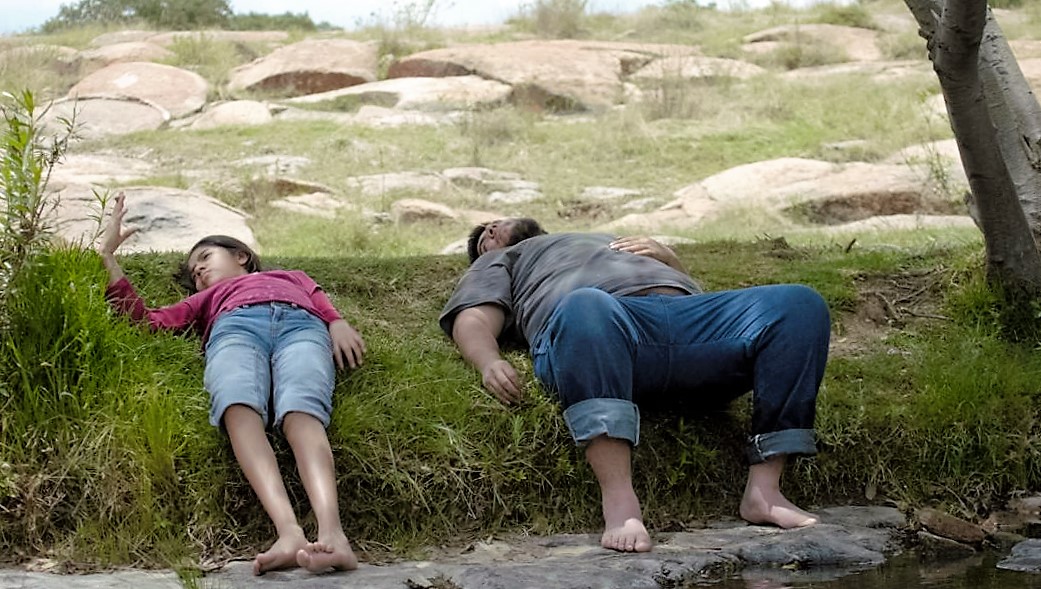
Generoso Fierro : Does the short story by Jean-Marie Le Clézio occur in France? What was the process of adapting an originally French story for Mexico?
Matías Meyer : I felt that the story was very universal. It is about this boy living with his mother on the side of the highway and his relationship with the little girl and the workers whom he comes to be with, so the film could’ve been shot anywhere. I knew that funding would’ve been easier in Mexico as opposed to where I live now in Canada, but I did write the script in French and translated it to Spanish because the co-writer is French-Canadian.
Lily Fierro : We were able to see two of your films yesterday evening that focused on sojourns into nature. The lead character in your first feature film, Wadley, exists entirely in nature as he escapes the city for the desert, and in your newest film, Yo, the titular character uses the the nearby river as a place to re-center himself, for it is a place of purity. But, does the river also represent the source of Yo’s essence of being, where he is more of an embodiment of nature than others?
Matías Meyer : I think that is a good interpretation. I like to leave my films open to personal interpretation to allow the viewer to be more interactive and less passive with what is onscreen. There is the scene in Yo when the mother takes the girl Elena and says, “Where were you? I was very worried, and I do not want you going to that place again,” and Yo goes to the waterfalls, and there is the moonlight, and I don’t know why, but this scene reminds me of Percival from Le Morte d’Arthur. I had this memory from when I was a child of watching this film on television where Percival is showered with the blood of a dragon that he has slain and that blood will make him immortal. So, I don’t know why, but I felt that this scene always made me believe that nature is a mystical place.
Generoso FIerro : There is a level of mechanization that increases in Yo as he is haphazardly forced onto a journey to manhood. The chicken barrel displaces his role as a chicken plucker in his mom’s restaurant, and on the construction site, trucks and cranes appear and carry far more than any human can, foreshadowing the eventual mechanization of his job hauling construction excess. Simultaneously, Yo is encountering more men in his life, and they place him in precarious situations involving alcohol and sexuality. How were you thinking about balancing conflicts between the pure essence of male human nature and evolving environment?
Matías Meyer : In a certain way, I think that it is good that Pady, the man who is the lover of Yo’s mother, is a bit forceful with Yo because mothers can be a bit too protective of their children. So, I like that Pady pushes Yo, which forces will him evolve and to find his own place in society. In his mother’s house, Yo is never going to succeed, and I think that is part of the problem when you have a disabled child: that you, as a parent, become too frightened for them if they go out into the world.
Generoso FIerro : I think that you exemplify that point visually about halfway through in the film. There is a great shot where Yo is playing on the floor of his mother’s restaurant when Pady brings in the construction workers who Yo will eventually work for as Yo’s role in the restaurant has changed now that a machine has been brought in to pluck the chickens.
Matías Meyer : Yes, there is a position in nature, and there is also a place for human constructed spaces like the beautiful land near the restaurant that is violated by the highway with its cars and loud noise. There is this element of man against nature that I wanted to show: how the world that man has created is so noisy, which conflicts with nature, and how by immersing yourself in a natural setting we can find a more original state where we can live harmoniously.
Lily Fierro : Given your fascination with Mexico’s culture and your desire to depict it on screen, we have to address the non-secular elements of Yo. Specifically, Yo’s Madonna-Whore complex that plays out between the four main women of the film: his mother, Elena, Jenny, Luisa. You avoid idolatry in all of the settings, but elements of Catholicism are subtly portrayed through Elena’s parochial school uniform and in the music you use, especially in the club scene where a disco version of “Ave Maria” plays in the background. Do you see organized faith (or its integration into society) as being as much in conflict with the natural environment as rapid mechanization?
Matías Meyer : That disco version of “Ave Maria” is in the book, actually. There are some people who say that Roman Catholicism is a lie because the day that Christ is born is actually the shortest day of the year, so by doing that, they are associating astronomy with religion. And I respond with, “Well yes, but is that is the opposite of religion?” I personally don’t think so as Christ is the son of God, and you can see this with the use of icons, which only help us to identify more with faith. It is just a very intelligent construction of symbolism. So, I would never say that faith or religion is bad; it is what we make of it, the same as science, which you should never say is a bad thing. I come from a religious family, but I never went to church. In terms of faith, my father would read the Bible to us on Sunday night before we went to sleep, and for me this was perfect, and that is why I don’t have any issues with Catholicism because I was never forced to go to church, which I think is a terrible way to introduce faith to a child. It is better for your children to discover God in their own way.
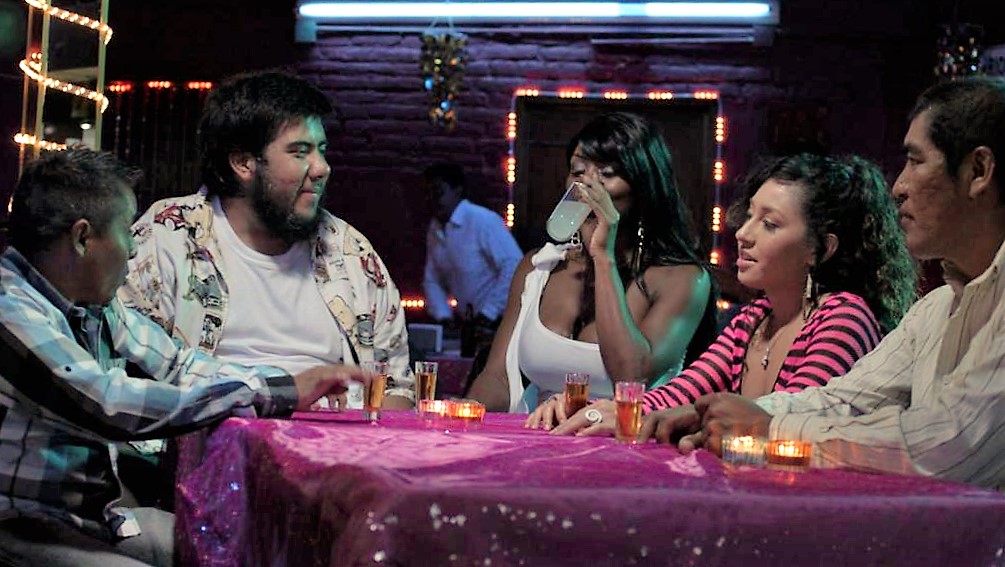
• •
We would live to give special thanks to Matías Meyer for his time and for his generous responses during our interview with him, and to Shannon Kelley, the Head of Public Programs, UCLA Film & Television Archive, who made this series possible. ◼
Official Trailer: https://vimeo.com/151978177


